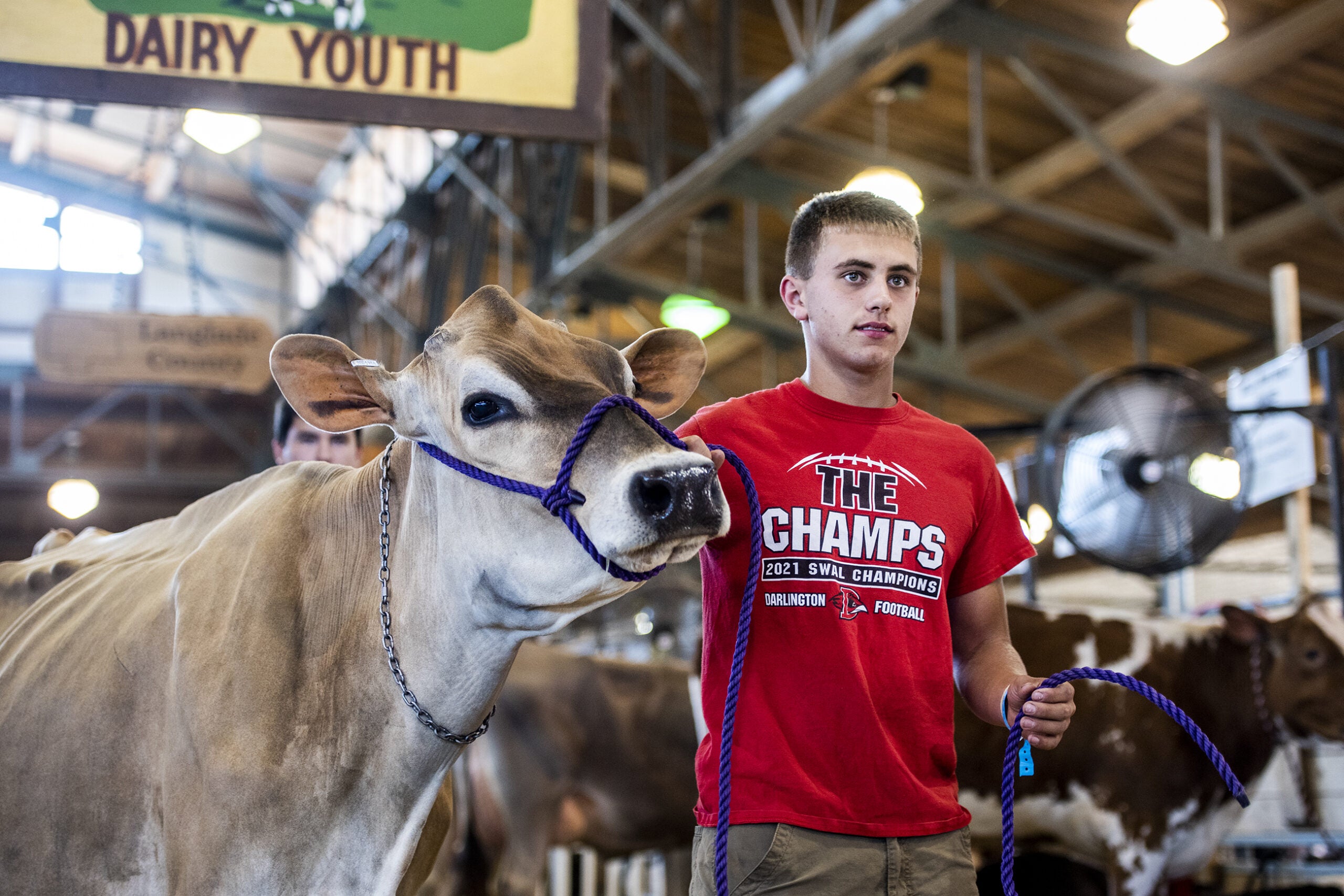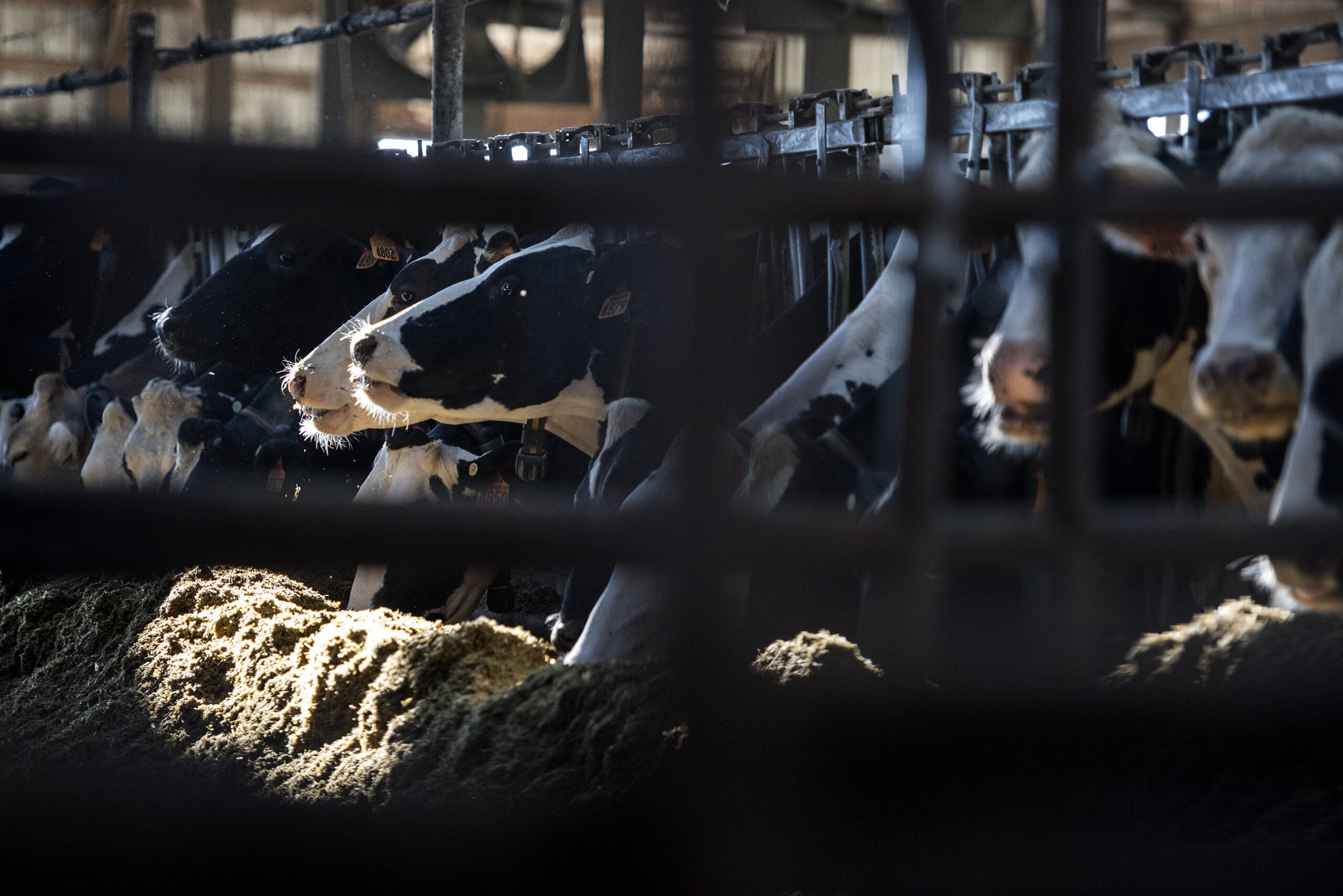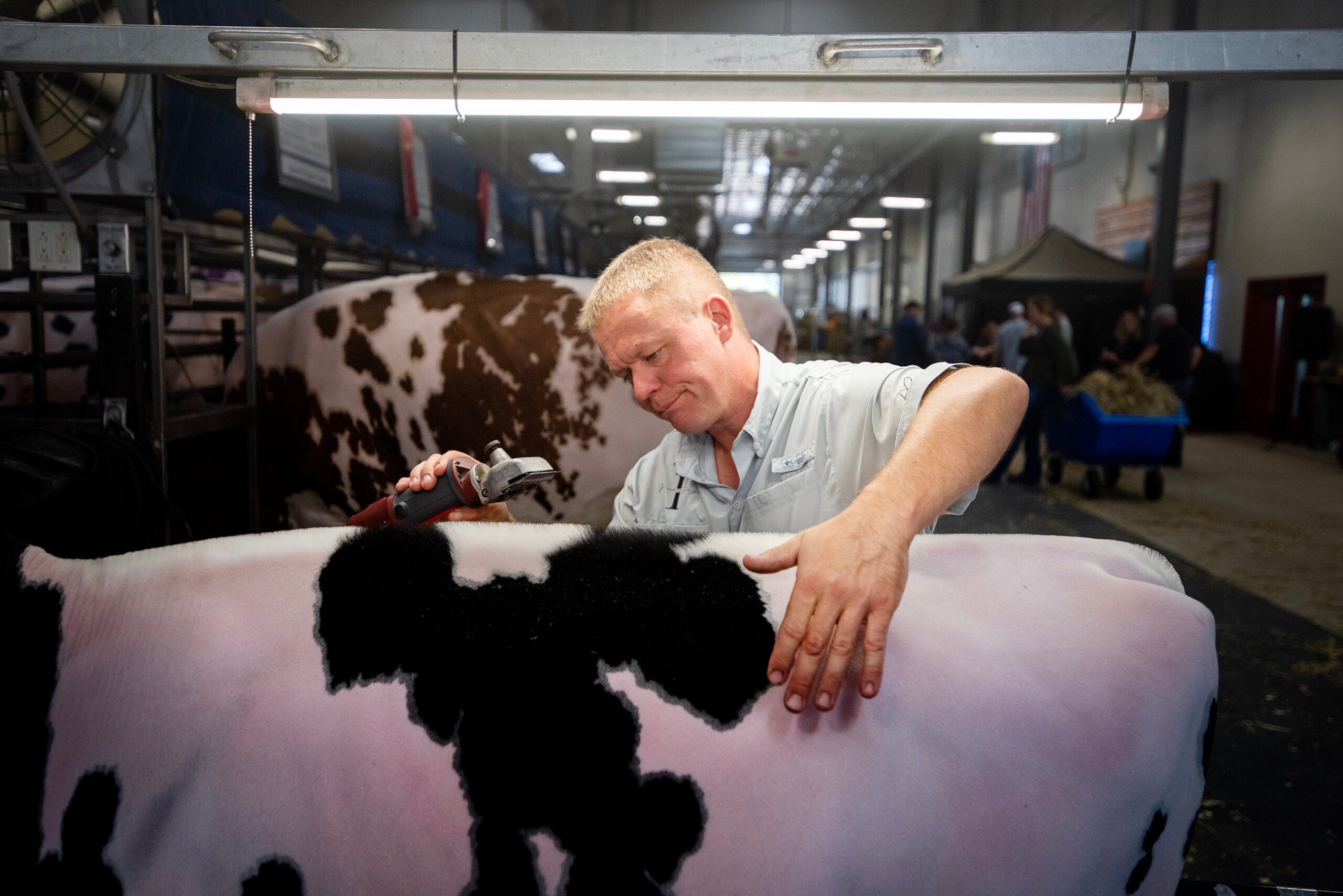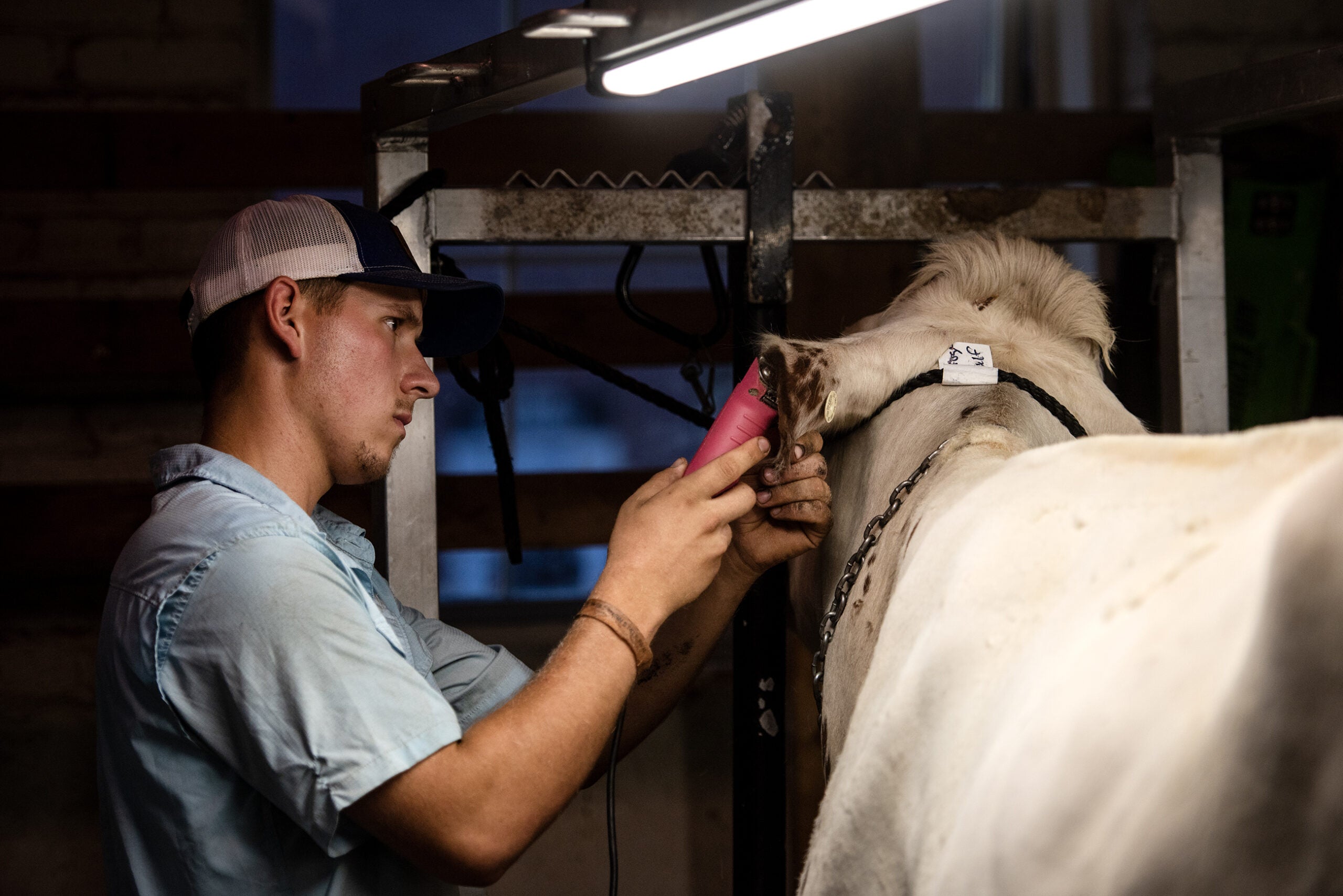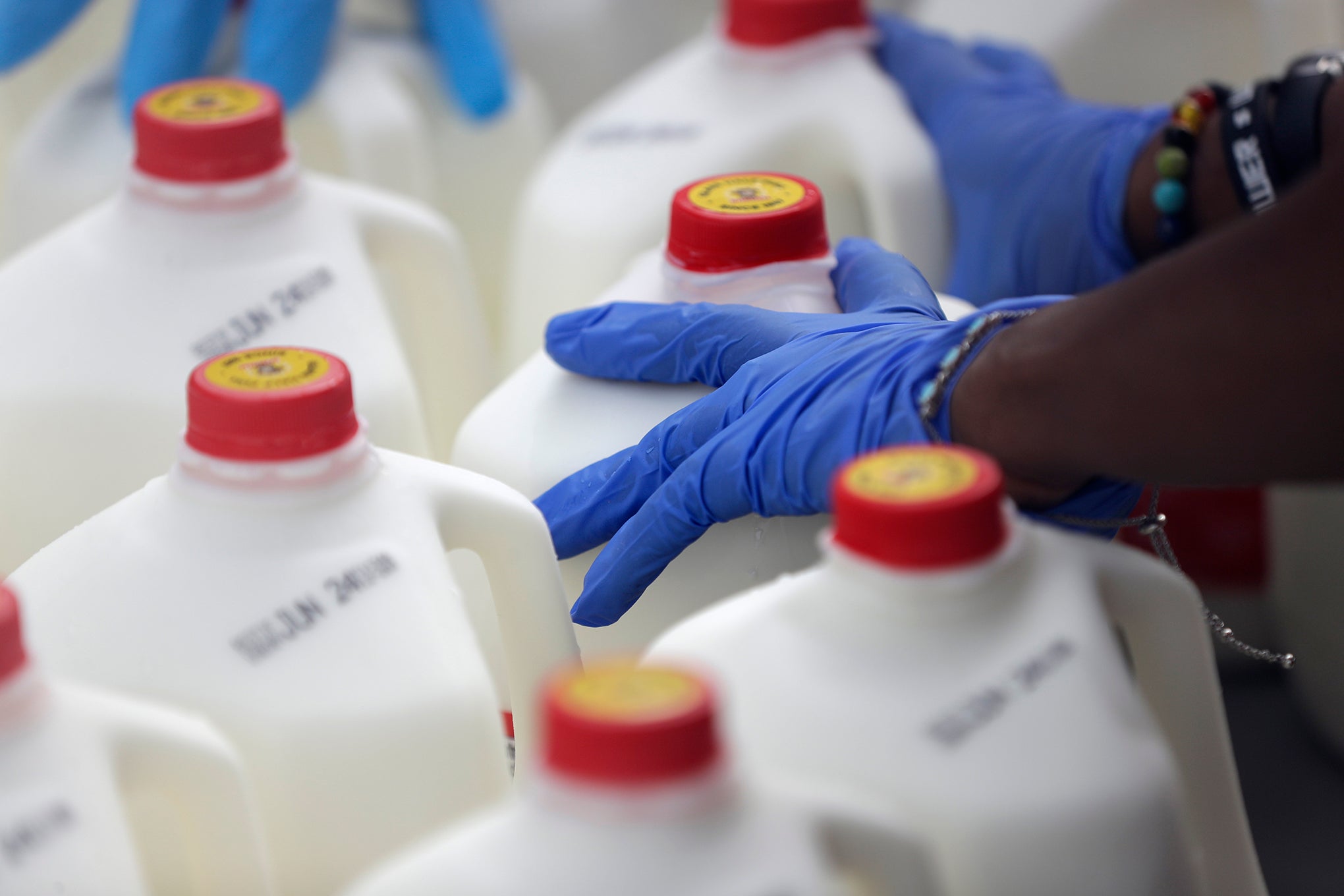A team of around 10 veterinarians will help check-in the cattle and other show animals coming to the Wisconsin State Fair this week.
Veterinary superintendent Dr. Tia Kastenson said the process will look mostly the same as it does every year, with animals coming off trailers and being settled into barns before the West Allis fairground fills with hundreds of thousands of people.
But this week, the team of animal doctors will be paying much closer attention to the dairy cows as avian flu continues to affect herds across the country.
News with a little more humanity
WPR’s “Wisconsin Today” newsletter keeps you connected to the state you love without feeling overwhelmed. No paywall. No agenda. No corporate filter.
Wisconsin has not had a case of the highly-contagious influenza virus since it was first reported in dairy cows in March. But new cases of the disease continue to surface and have been found in 13 states.
Lactating cows, or those currently producing milk, are required to have proof they’ve tested negative for influenza in the week before arriving at a fair or exhibition, thanks to a state order issued by the state Department of Agriculture, Trade and Consumer Protection in June.
Kastenson said it will likely take a little longer for the veterinary team to check the extra paperwork.
“They’ll collect the papers, make sure all the cows that are lactating have their (test) dates in check, and then they’re gonna monitor as those cows come off the trailer,” she said. “If there’s anything questionable, they’re gonna pull (the cows) before they go into the barn.”
She said the fair also has vets available throughout the 11-day event who can help watch for signs of illness in the barns.
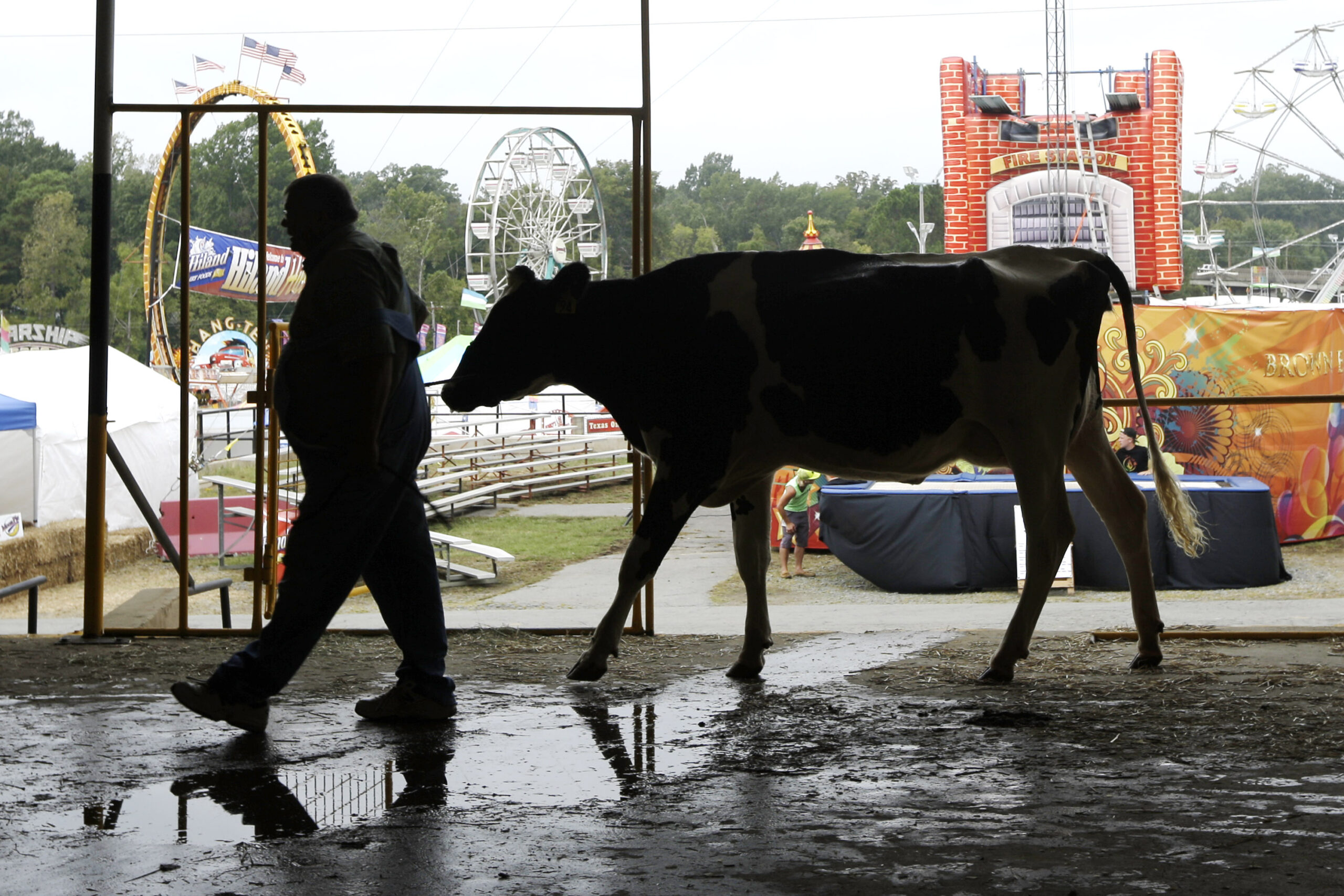
Kastenson said the State Fair hasn’t seen a drop in the number of people bringing dairy cattle to the Junior Show, they’ll start arriving on Tuesday. She said numbers for the open shows later in the fair have not been finalized, but she doesn’t anticipate lower participation.
“I don’t expect (fair attendees) to notice any difference,” she said. “The number of cows are the same, the shows are going to be run the same. Once they’re in the barn, it’s going to be pretty much status quo.”
County fairs around the state have already gone through the additional testing requirements for avian flu this summer. The Wisconsin Veterinary Diagnostic Laboratory has received nearly 400 samples every week since June, according to director Keith Poulsen.
Poulsen said they could accommodate more tests, but there hasn’t been the demand.
“We’re seeing much smaller lactating cow groups at our fairs or fairs have just canceled the lactating cow classes,” he said. “I live in Lodi. We only had one lactating cow (at the fair) and that was just sad because there’s a lot of farms and kids that are prepping those cows to show for so long.”
Poulsen said many dairy farms have been reluctant to test their cows because of concerns about what a positive result would mean for their ability to sell milk. Federal ag officials have tried to encourage more voluntary testing on farms to get a better understanding of where the virus is and how it’s spreading from farm to farm. But Poulsen said these efforts haven’t caught on.
Research by Poulsen and other scientists has shown that exposure to the milk from an infected cow is likely how the infection is spreading within a herd. But he said that doesn’t explain every new case.
Poulsen said the additional testing generated by fairs and exhibitions has been a positive, but only goes so far.
“It increases awareness and it does give us some information. But if we’re not doing herd level aggregate testing, we don’t have a complete picture of what’s going on,” he said.
Wisconsin Public Radio, © Copyright 2025, Board of Regents of the University of Wisconsin System and Wisconsin Educational Communications Board.

